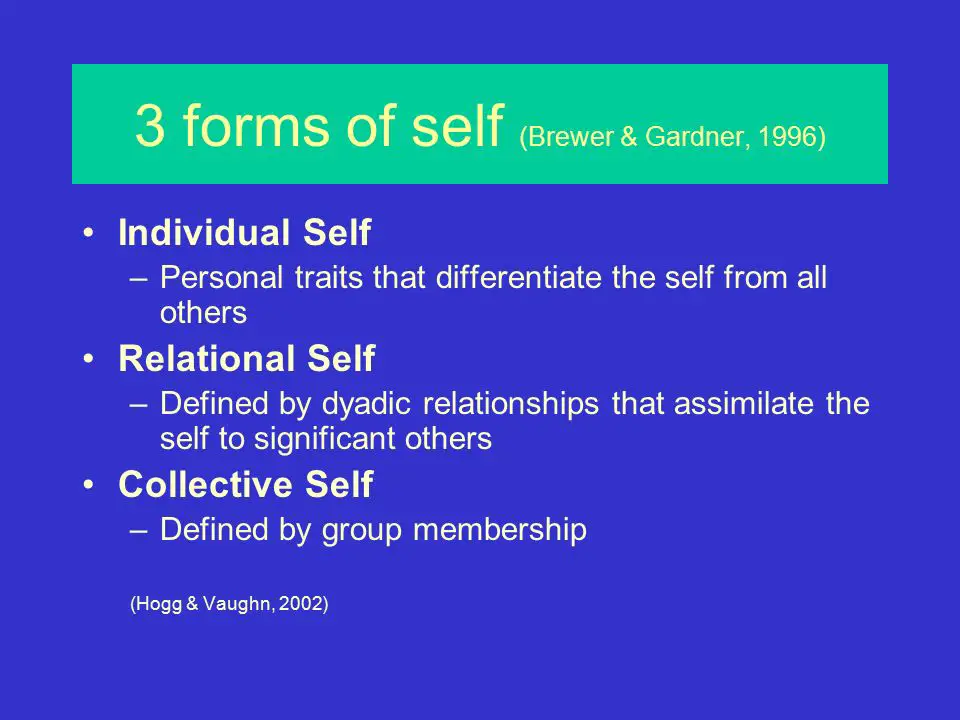May 21st, 2022
The idea of self-identity as ‘relational’ (inseparable and indistinguishable from the many psycho-social roles, forces, and interactions which comprise it), rather than independent or individual, may seem odd to most westerners –perhaps Americans in particular. Exemplified by early modern philosopher Rene’ Descartes’ famous declaration of individual autonomy via his famous statement “I think therefore I am”, western culture’s concept of individual identity (each of us as separate selves with individuated ego-centered characters, responsibilities, and rights) is the basis on which we establish both our personal identity and our relations with others. Communities and civil societies in the West (at least since the Enlightenment) have been conceived as collections of isolated individuals united only by ‘social contracts’, informal cooperation, or mutual consent to be governed—but not as legitimate entities in-themselves. Families, groups, or communities are no more than the sum of their individual members, with no identity in-themselves. Democracies, for instance, exist via “consent of the governed”, and are dissolved when the individuals comprising them decide to end the ‘social contract’ that united them, while marriages/families similarly involve the will of their constituent members and are dissolved when these members leave the arrangement. The idea here is that individual identity and personal volition is the foundational source of collective identity, and collective identities in themselves are little more than fictional constructs created by individuals. Recognizing and respecting this reality is essential to the health and order of any collective identity. This is why, in western societies, individual rights and responsibilities are fundamental (often enshrined in their constitutions and mission statements), but the viability of groups is contingent on the will of their individual members.
In contrast, the classical Chinese philosopher Confucius and the East Asian Confucian tradition that his legacy engendered, family, group, and social order was all about harmonious relationships. For personal psychology, a harmony of virtues was paramount. A balance in the soul between “Li” (roughly “ritual or social propriety”), “filial piety” (proper reverence and respect toward family members depending on their respective roles) “Jen” (roughly “kindness or “good will”), and “De” (roughly “personal commitment” or “integrity”) is essential for the healthy, moral person. Family health and harmony is based on proper relations between father, wife, son, and siblings. In society, proper relations between rulers and subjects or between friends and colleagues makes communities safe, stable, and virtuous. The individual person is not simply an isolated ego with his/her own independent identity, but is instead a kind of matrix where a host social roles, family duties, and public responsibilities meet and comingle in what we call a single ‘self’.
This holds true of Confucian communities and nations as well. “There is government”, Confucius said “when the prince is prince, and the minister is minister; when the father is father, and the son is son”. In Confucian thought –and indeed, all later Chinese thought influenced by his worldview—the relational nature of identity is comprehensive, and it takes precedence over the self-identity of individuals. Individuality can’t be countenanced in any way that remains independent of the collective, relational identity from which it arises. Personal identity in the Confucian view is shaped by the environmental, family, and social contexts that determine its nature. Communities, groups, and families aren’t simply contracts or agreements by isolated individuals to live with one another so long as the arrangement suits their own interests, but are instead an expression of collective will that simultaneously configures the personal and moral character of the individuals that comprise this collective. How often, for instance, do we say that a person’s character is a product of the family in which s/he was raised, or that character traits in individuals are a product of their culture or environment….?
Interestingly however, over the past century in the West, there has been an increasing recognition of this Asian insight and a corresponding trend in social psychology, sociology, and philosophy, toward more collectivist and relational conceptions of identity. Though still a minority report in mainstream and popular institutions and values, it has reconfigured the nature of much influential social and political theory. The ideas of the post-modern philosopher, intellectual historian, and social theorist Michel Foucault along these lines is a good example. Foucault was an exemplar of what has come to be called the ’post-modern’ movement in contemporary thought, which is, in many respects, an active intellectual revolt against ‘modern’ Enlightenment views (like those of Descartes)—such as the concept of an individual, independent ego at the center of self-identity. Like Confucius, Foucault conceived of individual identity as derived from larger inter-personal and inter-cultural matrices from which they arise, and saw individual character as a construct, or product of, family, social and environmental relationships. An individual’s morality, tastes, and behavioral norms, for instance, arise from family up-bringing and social mores—and these later are shaped, in turn, by the kind of individuals that they create. Every personal and public phenomenon–from body-image to ethnic traditions to civil rights– are a product of interrelated psycho-social forces interacting in various way to produce, and be produced by them, in turn. Individuals become who and what they are by virtue of all these sources of identity, and these sources also become what they are through this constant interaction. Our individual ‘self-image’, for instance, is shaped by our family life and society’s values, while our families and societies are also shaped by the self-images and personalities of their constituents.
However, there are important ways in which this post-modern concept of identity differs from that of Confucius and Classical Chinese thought. Foucault conceives of reality as, in an important sense, radically malleable and unstable. Reality is a kind of ‘hall-of-mirrors’ in which every kind of identity is so completely influenced by and interconnected with every other, that nothing has any essential nature. Indeed, the very idea of an ‘essential human nature’ or ‘natural order’ is, itself, just a product of psychological needs and values arising from the matrix of social relationships occurring at a given point in the ongoing evolution of human history. Classical Chinese thought certainly acknowledged the relational aspect of reality and recognized this in important ideas like the concept of “Yin and Yang” and the “five phases” of nature. However, it never, in any of its forms, completely abandoned the idea of an ultimately essential ‘nature’ of existence—whether as the Tao (“the Way”), Tai Chi (the Supreme Ultimate), or “Ming” (“fate”)—that underwrites and configures in some fundamental way, every relationship in the universe. Likewise, in the postmodern West, the idea of ‘moral realism’, in which ‘basic values’ provide absolute ethical standards for the proper conduct of a ‘good life’ (whether as divine commandments, universal rights, or rational principles), has been discarded in the postmodern milieu for the same reasons as Foucault discarded essential identities: if everything is a conceptual construct shaped by the interplay of other psycho-social constructs, then values are such constructs themselves and, like everything else, have no self-existent reality—they only ‘exist’ so long as we recognize them. Classical Chinese thought, in contrast, recognizes the essential reality of fundamental values for the same reason as it recognizes an essential ‘nature’ or natural order. This order embodies basic values that sustain it and that it manifests in human relationships. Values like filial piety, reciprocity, and good will, may be expressed in relational and perpetually evolving ways in human affairs, but nonetheless have foundational, established, and enduring origins.
Classical east Asian concepts of self and social identity therefore provides an interesting counter-point simultaneously to both modern (individualistic, ego-centered) and post-modern (relational, anti-foundational) conceptions of these in the West. It is more relational, malleable, and collectivist than the Western Enlightenment’s personal, individualistic ideals in this regard and consequently has not engendered the kind of libertarian individualism (along with abstract ‘rights’ which attach to individuals) in Chinese society that remains so popular in Western social-political thought and institutions. However, it has also retained a sense of fundamental identity and values which, while much more loosely conceived than those of the West, are nonetheless more substantial than Foucault’s post-modern ideas along these lines. The concept of the person as relational and environmentally constructed, but also grounded in an absolute and essential natural order, provides the space for social relations that simultaneously recognize and harmonize both the insubstantiality and the reality of a stable self that is also part of a collective community to which it is genuinely morally responsible.
We hope you enjoy our articles. Please note, we may collect a share of sales or other compensation from the links on this page. Thank you if you use our links, we really appreciate it!



